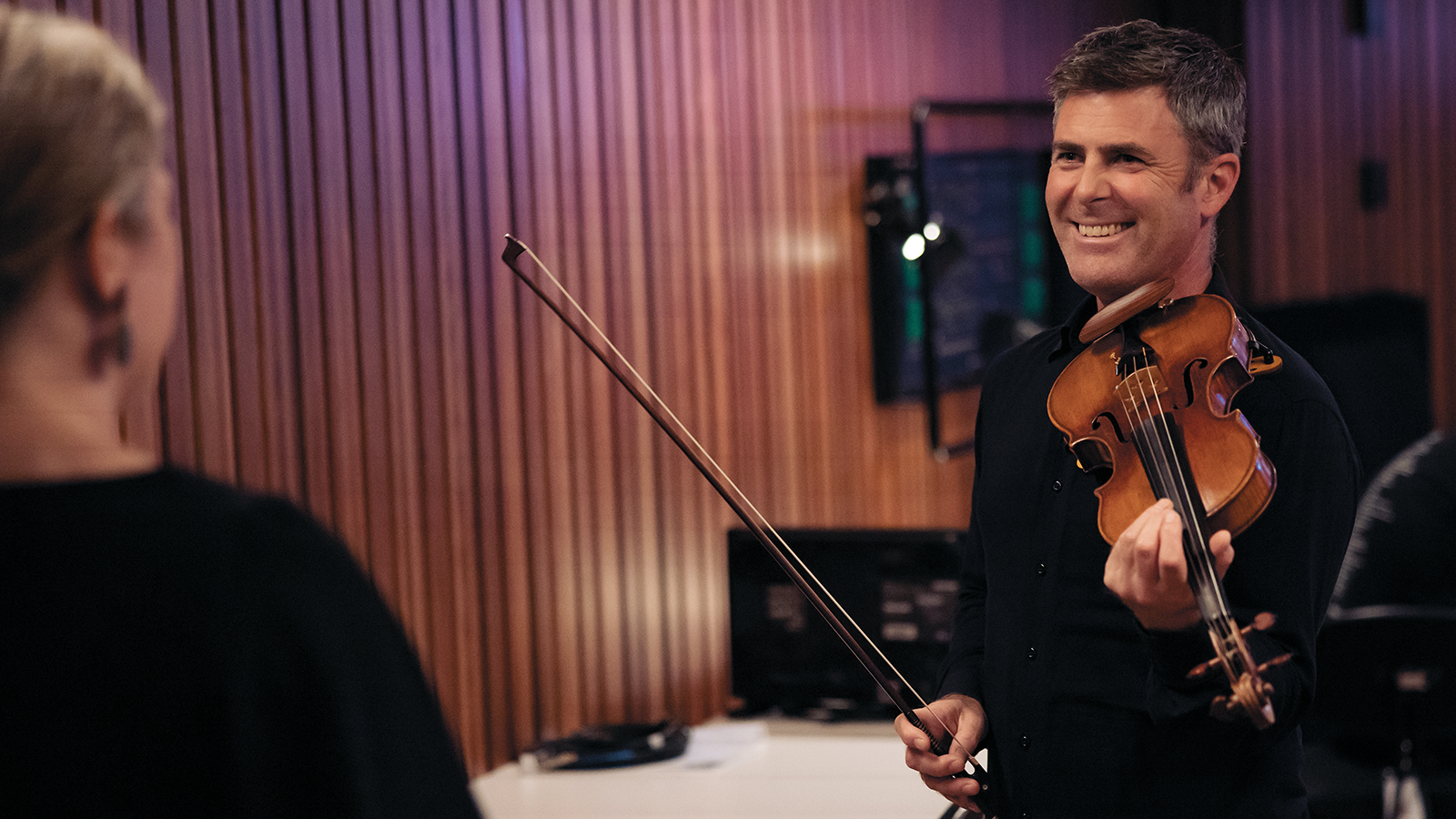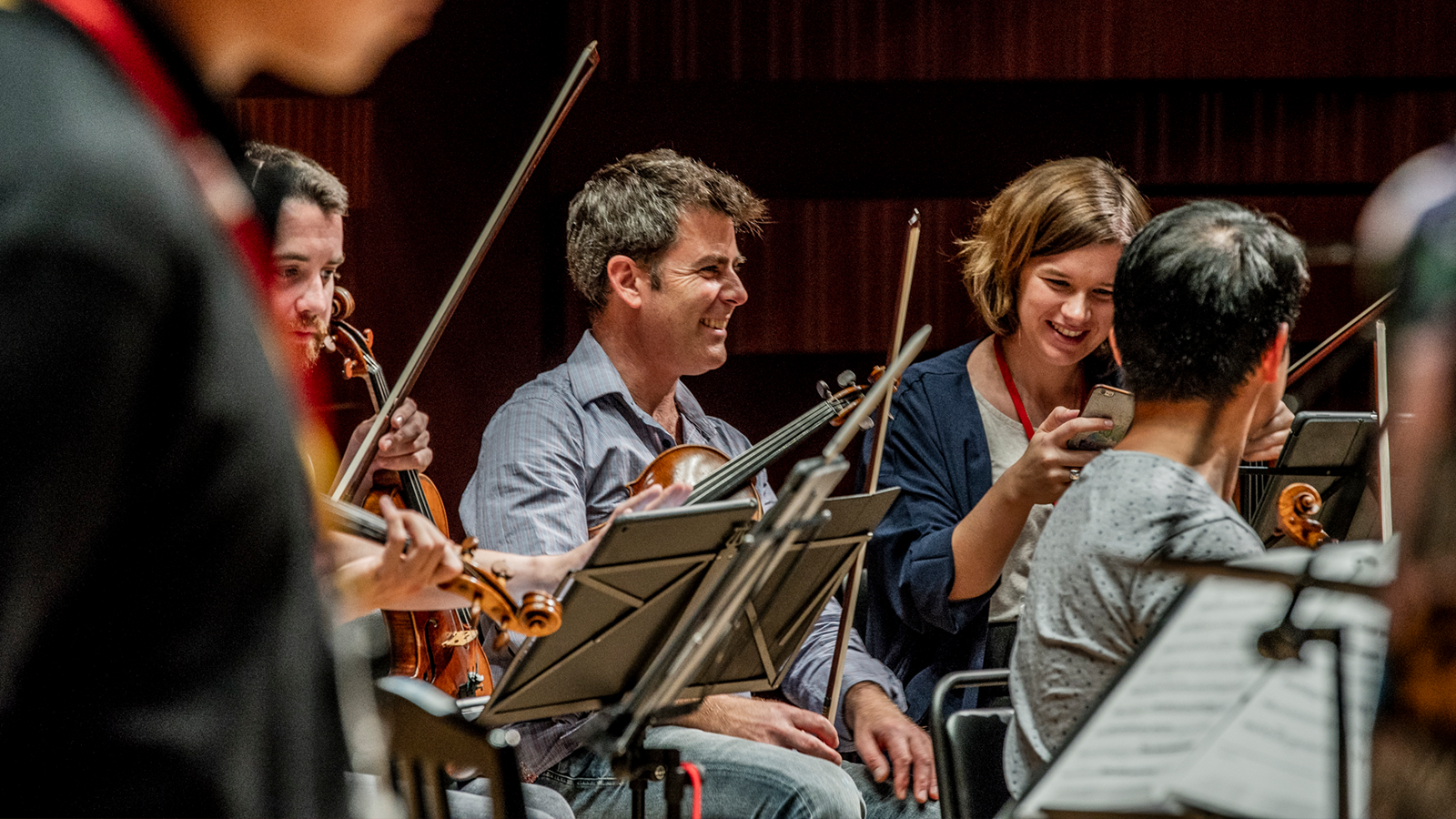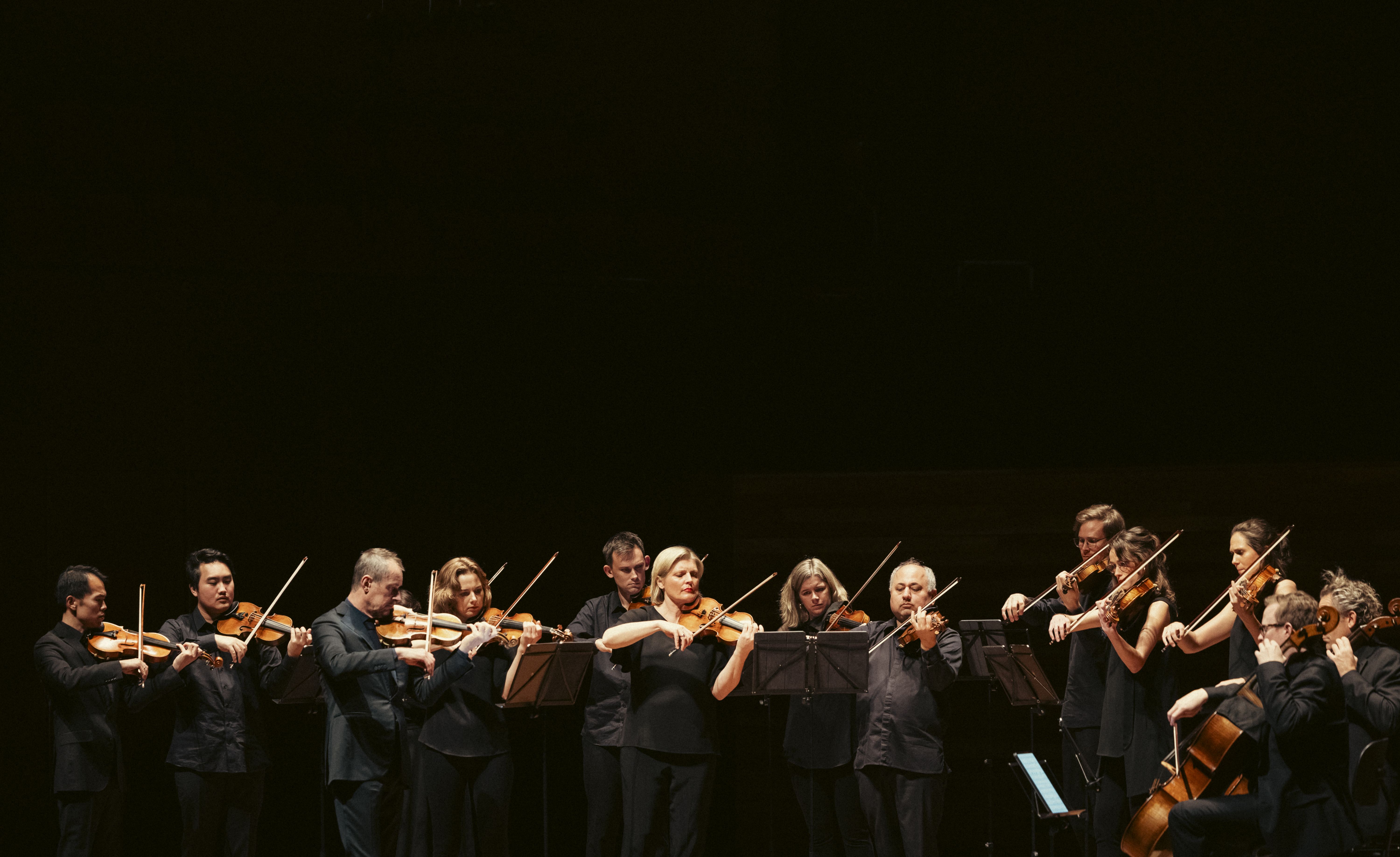
Fiona Wright
It was hearing the violin that made Mark Ingwersen choose it as his instrument. His father, he says, loves music and always had his favourites playing.
I imagine the whole house thrumming, trilling, in concert. What he remembers, though, is just loving the sound of the violin, up high there, carrying the melody – “of course, it doesn’t sound like that when you start learning.” What he remembers is being thrilled to have the instrument in his hands. Even then, it felt like a privilege.
Ingwersen grew up in suburban Canberra and his high school orchestra, such as it was, consisted of two violins “and a few too many clarinets”.
We talk a lot about wonderfully ordinary places where a person might begin.
*
We talk a lot about time. Inevitable, perhaps, for a person leaving an organisation that he has worked with intensely – that has been a huge part of his life – for 32 years. About how many things – suburbs, people, orchestras, cities – can transform themselves across time, about how different the worlds we move through might become, how much of it would have been impossible to imagine at the outset.
Ingwersen first played for the Australian Chamber Orchestra in 1991, having caught a bus from Canberra to Kings Cross for his audition. He’d had two days’ notice to prepare and was in his third year of university – so terribly young. “I scratched something out,” he says, “and I left the audition thinking, they’re not going to want that.”
In his first program, the Orchestra played Janáček, Walton, Beethoven’s Opus 95, Eine kleine Nachtmusik. “It was nuts, it was totally full on,” Ingwersen says. “I loved it.”
Ingwersen still laughs when recounting that he showed up to that audition wearing tracksuit pants and a flannie.
*
The defining feature of the ACO, Ingwersen says, is how close the musicians become. It transfers across into the way they play.
“You develop an instinct,” he says. “You know exactly what the others are about to do and can react before they’ve done it. It’s enough to see the very beginning of their body’s movement, and you know.”
And you notice, he adds, that this is different any time you play with other groups or other people. It takes time to know each other so intensely.

We talk a lot about luck. Ingwersen says that he is lucky. That he has been lucky, he can’t quite believe his luck. To work in a job that he loves, to work fulltime as a musician, to play with such people, to play such an instrument, to be challenged every day.
“How lucky am I?” he says.
*
Ingwersen’s first stint with the ACO was as a casual and after a few years he stepped away to study in London. It was a crazy time, a crazy city. He says he was “diligent” – though many around him were not – and had a lot of fun.
It was a precarious existence. As a young, gigging musician in a huge, old city, he was never quite sure where his next rent would come from. Sometimes he would gather up four of his classmates – three for strings, one to spruik – and they would play at Covent Garden. A string quartet in the centre of the city: after an hour, and even split five ways, they’d walk away with enough to live on for the next few weeks. “I would never, never want to live like that again,” he says, “but it was wonderful.”
When he’s been back there with the Orchestra, there have been gorgeous concert halls, nice hotels, a meal allowance. Ingwersen grins. “But I will never forget how it was. How much can change, and how completely, over time,” he says. “It is a completely different world.”

The defining feature of the ACO, Ingwersen says, is how close the musicians become. It transfers across into the way they play. “You develop an instinct,” he says.
Alone, Ingwersen’s favourite piece to play – “I’ll open a page in my mind” – is any Bach sonata.
Within the Orchestra, it’s far too difficult to choose. But a Schönberg or a Beethoven symphony – “it’s a blast”: these come close.
*
He’d always intended to come back: to his home, to his family, to the ACO. Returning from London, Ingwersen says he landed with a thud. He was “on fire”, playing better than he ever had – but the work just wasn’t there. For a time he played Christmas carols out of Australia’s Wonderland. “I thought, what have I done?”
He began his trial and probation period for a fulltime position with the ACO later that year – 25 years ago.
It doesn’t get better, he says. This is it.
*
Ingwersen has been playing a Stradivarius – more precisely, a composite Stradivarius, which saw two Stradivari instruments rebuilt together, as one. “This instrument, it’s pretty special,” he says.
“I sometimes think – it’s amazing – about everywhere that violin has been, about who has handled it, who has played it, the events that it has lived through,” says Ingwersen. “The plague, war and revolution, again and again. It has crossed the globe, in a journey unthinkable at the time it was made – 1729 – to land in a place that wasn’t known to exist to the people who made it.
All this time and all this touch, there in this beautiful old instrument.”
All this time, everywhere it’s been and everyone’s who has played it: and now it will continue on to someone else.
*
He is lucky and he is leaving. He says, “You don’t make decisions like this overnight. It took a long time to come to terms with it,” he says. “It’s a wonderful job, playing with the ACO, but a big job.” There is travel, and touring, time away from his wife and three children. But he could easily have stayed forever.
There are many things that make a life, after all. And work – even much-loved, wonderful, how-lucky-am-I work – is only one of them.
Mark's final performance with the ACO will be Wilfrid Gordon McDonald Partridge, 9-15 July.
